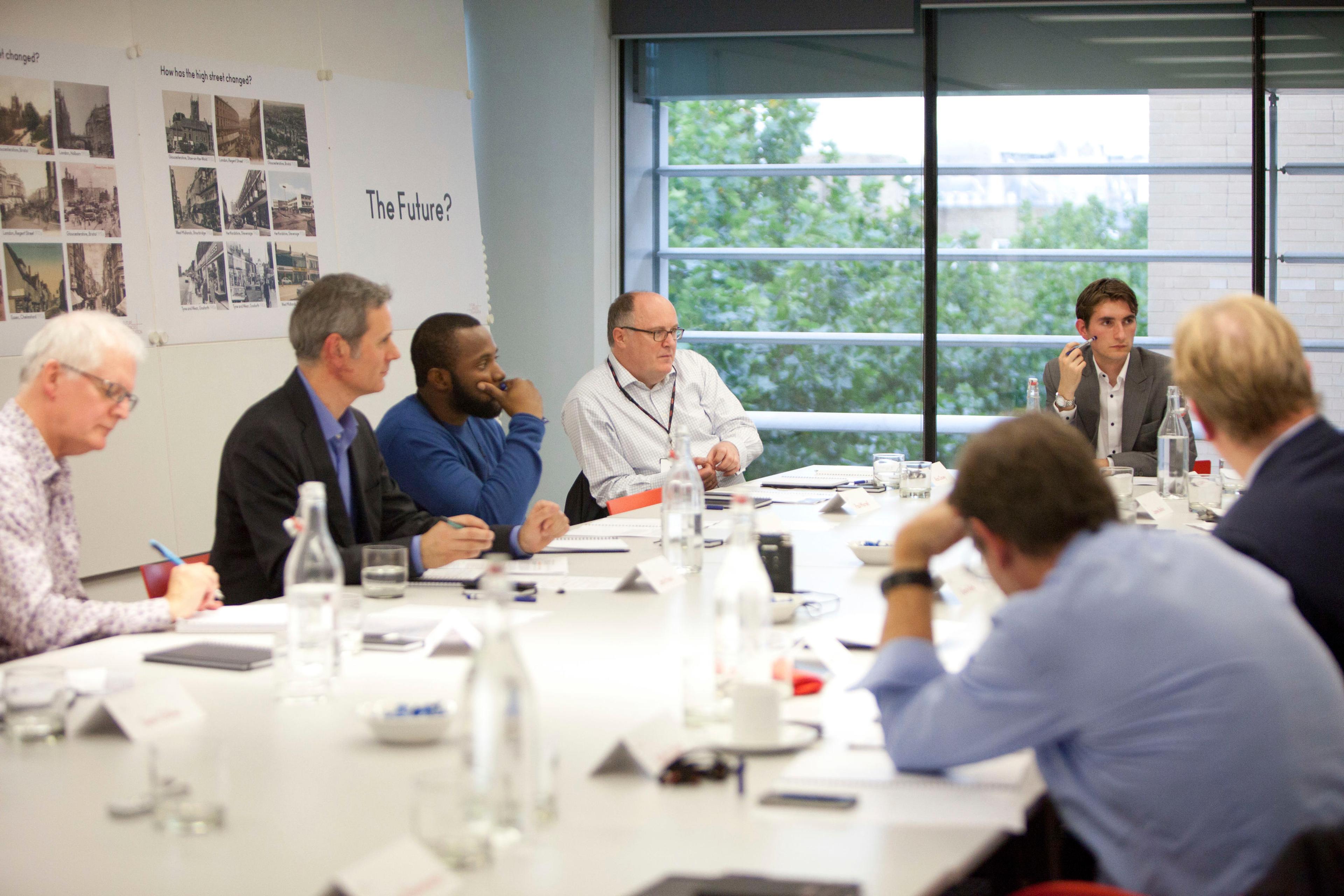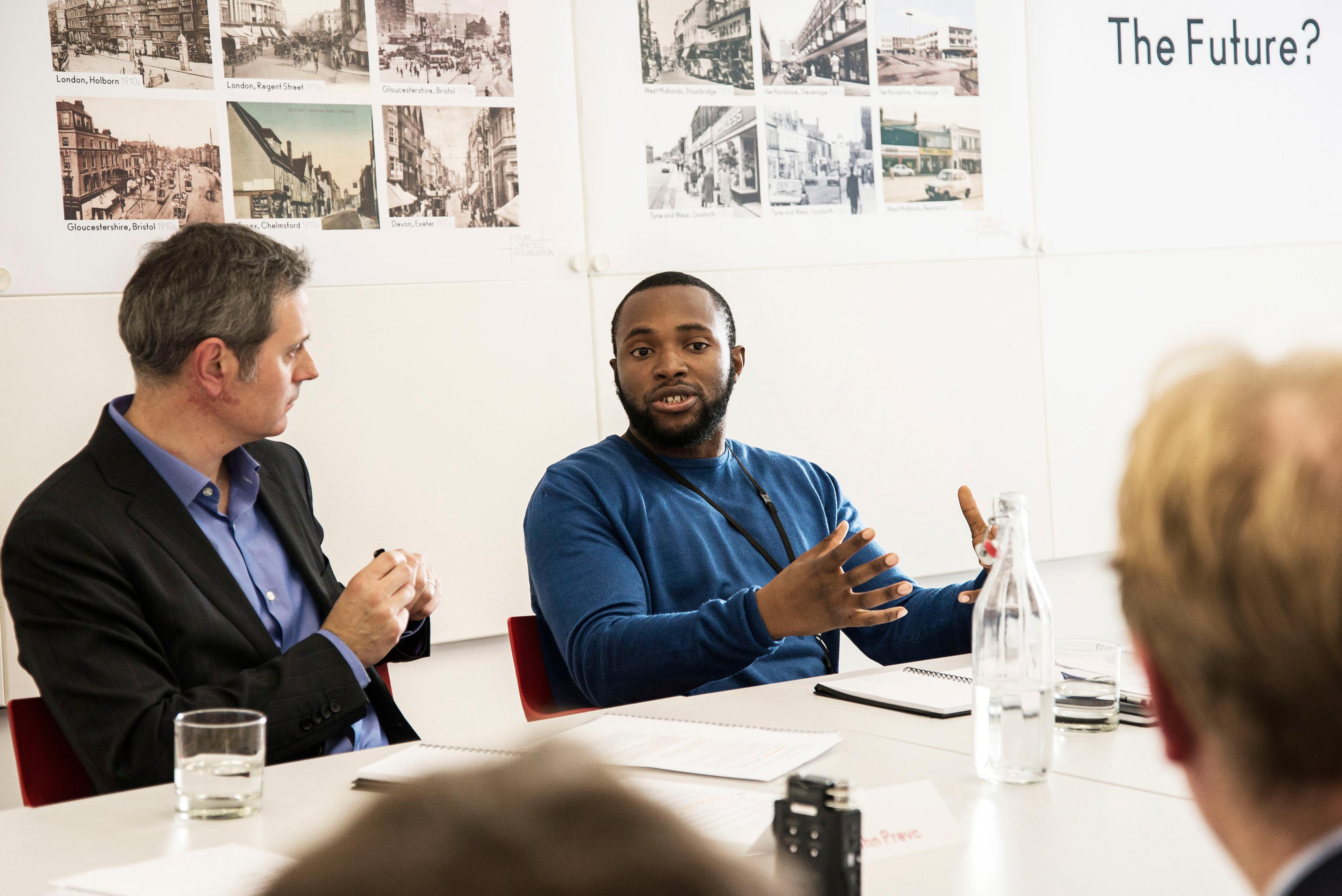- News
Enhanced knowledge economy could boost typical UK high street by £30 million, reveals new think tank
- Newly-formed think tank finds towns and cities could be boosted by up to £30 million through realising the knowledge economy opportunity
- The Future Spaces Foundation is calling for policy makers to find opportunities to bring centres of learning closer to town and city centres
A renewed focus on the knowledge economy could inject up to £30 million each year into many of the nation’s ailing high streets, according to a report released today by new independent think tank, The Future Spaces Foundation.
The Foundation’s inaugural report, The Future High Street: Perspectives on living, learning and livelihoods in our communities, uses an economic model with emphasis on business services and the knowledge economy, which was applied to three example UK towns and cities – Barnsley, Swindon and Stoke-on-Trent. The results showed that by assessing the impact on factors such as business investment, employee productivity and future growth rates in output in this sector, in every instance there was an economic uplift and a number of new jobs created when this model was applied. In Stoke-on-Trent alone, the economic increase per year was found to reach £30.3 million and the number of new jobs created totalled 642.
Based on these findings, The Future Spaces Foundation is calling for three things:
- A renewed focus on bringing learning opportunities into the centre of towns and cities when considering the expansion of existing facilities or development of new ones
- Greater community empowerment in the planning process, including the formation of a youth consultation panel to ensure the opinions of the community of the future are considered
- Simplification of planning processes to enable town centre buildings and sites to be converted to uses that match demand
Fresh approach
The Future Spaces Foundation has been established to explore the socio-economic, demographic and technological factors that affect the way we live and work and the impact they have on the spaces we live in. This report examines the high street from a more comprehensive perspective than ever before, examining the facets of the issue from employment and commercial opportunities to health and well-being.
Aside from the economic benefits of the knowledge economy model, the Foundation also identifies the value of community involvement in planning our town and city centres in order to achieve an end result which reflects local requirements and makes high streets places people want to be again. The panel believes this could be complemented by a simplification of planning processes to maximise the use of vacant space on the high street. The Foundation proposes the development of ‘key spaces’, which would include services, education and retail facilities for the community, ensuring that new development areas serve the community as a whole and add value to existing spaces right across the spectrum.

Paul Swinney, Senior Economist at Centre for Cities and FSF panellist said:
“For too long policy makers and other commentators have focused too closely on retail as the solution to reviving the high street. But this is too narrow – retailers require footfall, and this footfall is created by people coming to use high streets as places of work, leisure and residence. Only by addressing issues facing city centre working, learning and living can we hope to bring people back to town and city centres. Then retailers will benefit as a result.
“This report shows that the combination of education, research and employment opportunities provided by universities and centres of learning is one route that national and local government can use for rejuvenating our high street from both an economic and a social perspective.”
Ken Shuttleworth, Founder of Make Architects and Chair of the Future Spaces Foundation said:
“The Future Spaces Foundation was formed to look beyond short-term solutions and existing debates – and we believe this, our inaugural report, has done just that.
“We hope these findings will be a wake-up call for policy makers and commentators to finally accept that we need to think creatively when approaching the problems on our high streets.
“Without a significant shift in perspective, we are in danger of losing these spaces and seeing our town centres as we know them disappear forever.”
